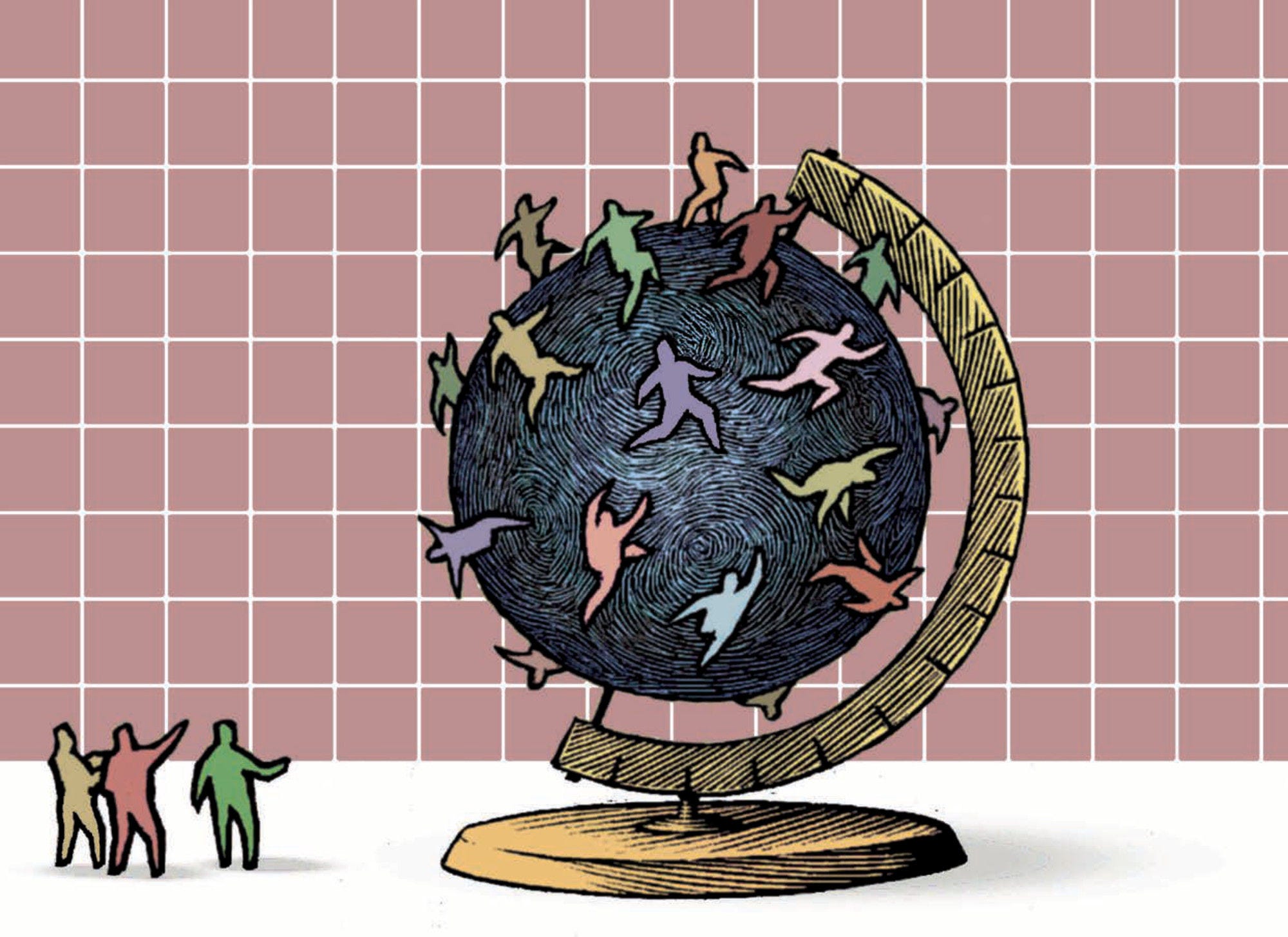In 2017, Israel received 26 000 new immigrants on a long-term or permanent basis (including changes of status), 1.5% more than in 2016. This figure comprises 23.5% family members (including accompanying family).
The number of tertiary-level international students remains relatively low at 1.4% of all higher education students in Israel. Temporary and seasonal labour migrants came in increasing numbers in 2017, with 57 000 permits delivered (+9% compared to 2016).
The Former USSR, France and the United States were the top three nationalities of newcomers in 2017. Among the top 15 countries of origin, the Former USSR registered the biggest increase (1 700) and France the largest decrease (‑1 100) in flows to Israel compared to the previous year.
In 2018, the number of first asylum applicants increased by 6%, to reach around 16 000. The majority of applicants come from Eritrea (6 300), Russia (2 800) and Ukraine (1 800). The largest increase since 2017 concerned nationals of Eritrea (4 000) and the largest decrease, nationals of Ukraine (‑5 900). Of the 10 000 decisions taken in 2018, 5% were positive.
Emigration of Israelis to OECD countries decreased by 4.3%, to 11 000. Approximately 34.3% of this group migrated to the United States, 18.8% to Germany and 16.8% to Canada.
By the end of 2018, there were almost 100 000 legal foreign workers in Israel, excluding cross-border Palestinian and Jordanian workers. Of these, more than half (55 000) were in the caregiving sector, 22 000 in agriculture and 14 000 in construction.
Israel signed bilateral agreements in 2018 with the Philippines. These latest agreements were the first in the field of home care and tourism. In August 2018 two new quotas for temporary migrant workers were set, one in tourism (1 000 housekeepers to be recruited through a bilateral agreement) and one in industry, following a 2017 government resolution which called for easing procedures for recruitment of foreign Hi-Tech specialists. In July 2018, the government authorised additional non-Israeli construction and infrastructure companies which fulfilled the prerequisites set out by the Israel Ministry of Housing in 2016, to hire up to 1 000 workers each from abroad, representing up to 6 000 additional workers. The same month, the government raised the quota of Palestinian day workers in the construction sector by 1 500 workers and the quota of daily cross-border Jordanian workers in the Eilat tourism sector by 500, to 2 000. New quotas for Palestinian day workers were also set in the hotel sector (1 000 workers), restaurant sector (1 500) and nursing home sector (1 000).
In the face of high demand, the Ministry of Tourism decided in February 2019 to assign foreign workers to hotels based on a scoring system favouring hotels which have been ranked by the Ministry’s star system; high occupancy hotels and hotels in the Dead Sea and Tel Aviv region. Eilat hotels, which employ Jordanian cross-border workers, are excluded.
The government continues to reduce the employer levy for employment of foreign workers. In 2010, the levy was set at 20% for all temporary migrant workers, except for the home care sector. The agriculture sector remains exempt from this levy until the end of 2020. In construction and the ethnic restaurant sector the levy was reduced to 15%. Employers of irregular border-crossers from Eritrea and Sudan holding a temporary stay visa must deposit up of 16% above salary, along with 20% withholding, redeemed by the foreigner upon leaving Israel.
Voluntary return has reduced the stock of irregular border-crossers to 33 600, 40% below its 2012 peak. About 2 400 Eritreans and Sudanese with this status departed in 2018, most going to other countries rather than to their origin country.
In 2019, 1 000 parents of certain Ethiopians will be allowed to enter for family unification with their children. A decision taken in 2016 to allow family unification of 1 300 of this group was fully implemented in 2017.
Temporary residence on a humanitarian basis was granted to 800 Sudanese from Darfur and other regions in conflict in Sudan, already in Israel. The government took steps to accelerate screening of asylum requests for persons arriving from Ukraine and Georgia, leading the number of applicants from these countries to fall sharply. However, the number of asylum applications filed by Russians rose sharply in 2018.
For further information:
www.cbs.gov.il
www.economy.gov.il
www.piba.gov.il
www.moia.gov.il
